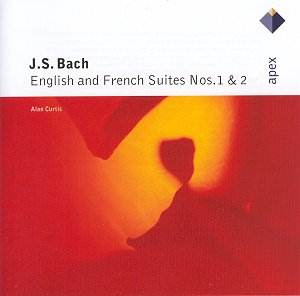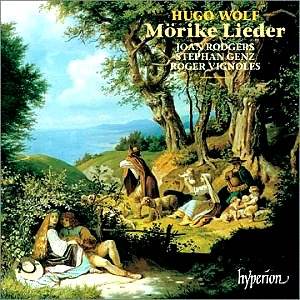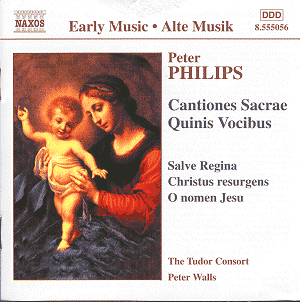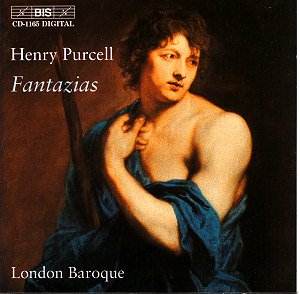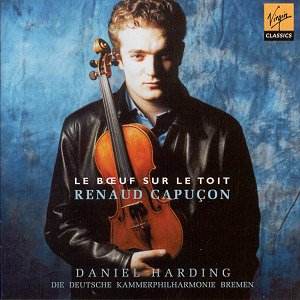 Composer: Saint-Saëns, Massenet, Ravel, Berlioz, Milhaud
Composer: Saint-Saëns, Massenet, Ravel, Berlioz, Milhaud
Works: Introduction et rondo capriccioso Op.28, Havanaise Op.83, Valse-caprice Op.52 No.6, Danse macabre Op.40, Meditation from Thaïs, Tzigane, Reverie and caprice Op. 8, Le boeuf sur le toit Op. 58b
Performers: Renaud Capuçon (violin), Die Deutsche Kammerphilharmonie Bremen, Daniel Harding (conductor)
Recording: Recorded at Gutsscheune Stuhr-Varrel, Bremen, 29-30 November 2000
Label: Virgin Classics
The latest offering from Renaud Capuçon presents a delightful array of French works for violin and orchestra, embodying the vibrant tapestry of late Romantic and early 20th-century French music. Each selection, from the effervescent fireworks of Saint-Saëns to the evocative textures of Ravel, serves not only as a showcase for Capuçon’s formidable technique but also as a vivid portrait of the cultural milieu that inspired these composers. The disc flows seamlessly, with each piece contributing to a larger narrative of French musical identity, reflecting both sophistication and a penchant for the theatrical.
Capuçon’s interpretation of Saint-Saëns’ “Introduction et rondo capriccioso” is particularly noteworthy. His command of the instrument is evident; he navigates the work’s virtuosic passages with a blend of precision and lyrical warmth. Daniel Harding’s orchestral accompaniment is equally compelling, providing a rich, sonorous backdrop that enhances the soloist’s expressive phrasing. The “Havanaise” and “Danse macabre” exhibit a similar level of engagement, with Capuçon’s phrasing capturing the playful, yet refined character of these works. The latter, characterized by its Lisztian bravura, is rendered with a delightful sense of drama, culminating in a performance that balances both technical prowess and interpretive depth.
The inclusion of Massenet’s “Meditation” offers a moment of reflective solace amid the more exuberant offerings. Here, Capuçon’s tone is hauntingly beautiful, showcasing a nuanced understanding of the work’s emotional landscape. This is contrasted sharply by Ravel’s “Tzigane,” a piece notorious for its technical demands. Capuçon rises to the challenge with aplomb, delivering the work’s intricate passages and virtuosic flourishes with an effortless flair that is truly remarkable. The interplay between the violin and the orchestra in this piece is particularly striking, revealing the depth of engagement and communication between Capuçon and Harding’s ensemble.
Berlioz’s “Reverie and caprice” reveals the composer’s early romantic sensibilities with a freshness that resonates throughout Capuçon’s interpretation. The phrasing is imbued with both longing and exuberance, showcasing the rich harmonic language that Berlioz is known for. Milhaud’s “Le boeuf sur le toit,” typically a work for orchestra alone, is reimagined here in a version that highlights Capuçon’s comedic timing and technical dexterity. The playful, almost grotesque character of the piece is emphasized through both the soloist’s spirited performance and Harding’s deft orchestral direction.
The recording quality is praiseworthy, capturing the intricate details of Capuçon’s playing and the orchestra’s full-bodied sound. The acoustics of the Gutsscheune venue imbue the recording with warmth and clarity, allowing the nuances of the ensemble to shine through. The engineering team has adeptly balanced the soloist and orchestra, ensuring that neither overshadows the other in this engaging dialogue.
This album stands as a testament to Renaud Capuçon’s artistry, marking a significant entry in the realm of violin recordings dedicated to French repertoire. His youthful exuberance, combined with a profound interpretative insight, positions him as one of the leading violinists of his generation. The collaboration with Daniel Harding and the Die Deutsche Kammerphilharmonie Bremen further elevates this recording, creating a compelling synergy that breathes new life into these well-trodden works. Each piece, while familiar, is presented with a freshness that invites repeated listening, making this disc not merely a collection of popular favorites, but a thoughtful exploration of the French violin repertoire.
